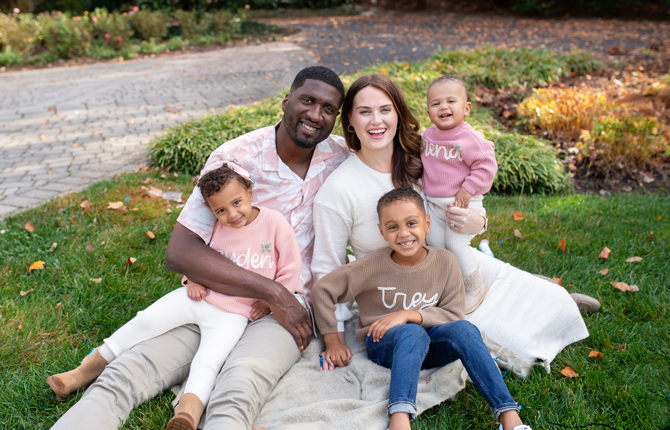
Hope for a Healthy Serena

Serena is an energetic toddler who delights in playing with her older siblings. “She follows her brother and sister around,” her mom, Valerie, says. “She wants to eat what they eat and ‘help’ with their craft projects. She’s happy, curious and doing great.”
Things were not so lighthearted during Valerie’s pregnancy. A fetal echocardiogram at 27 weeks at a community hospital indicated the baby might have serious congenital heart defects. A specialist suggested that Valerie and her husband Roy might choose to end the pregnancy. “We felt confused, devastated and hopeless,” she says. “This was a lot of information to take in. We didn’t know if our baby would live or what her life would be like if she did.”
The couple met with Mary Donofrio, MD, FAAP, FACC, FASE, at Children’s National Hospital for a second opinion. She is the medical director of the Prenatal Cardiology Program and specializes in diagnosis and in-utero management of congenital heart disease. “There was also a social worker present to support emotional challenges that we might have,” says Valerie. “This meant a lot to me as we faced news that could have been the worst we’d ever had in our lives.”
Dr. Donofrio examined the baby’s heart by ultrasound. She agreed that the right side appeared enlarged. However, she did not find the other abnormalities the referring doctor had noted. She drew diagrams and used a model heart to explain that though unlikely, the enlarged right heart may be due to a potential aorta narrowing.
“Dr. Donofrio was very thorough and used language we could understand,” Valerie says. “She also gave us two important things we could count on: the baby would survive in the unlikely event she might need surgery and the potential defect wouldn’t impact her day-to-day life. This was the first moment we had hope.”
Serena arrived spunky and ready to face the world. A Children’s National care provider visited the local hospital where she was born to perform an immediate ultrasound of the heart. The news was good: Serena would not need surgery. She also would not have any lasting heart complications.
“We were on cloud nine,” Valerie says. “This was the best thing we could have heard. We could not be more grateful to Children’s National.”

Make a Difference
Your charitable donation changes children’s lives. Support exceptional health care and discoveries that offer hope, healing and brighter futures.



